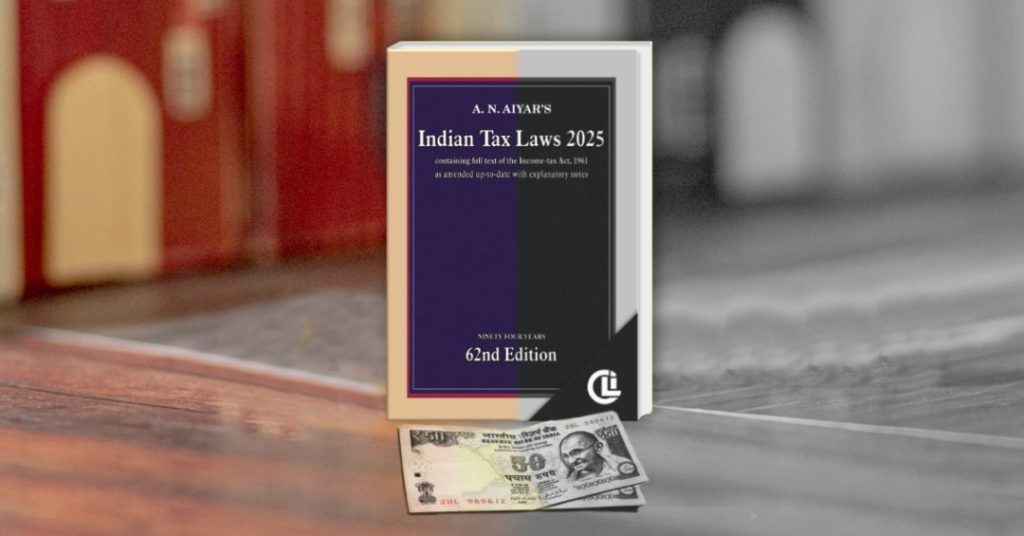
Filing Income Tax Returns (ITR) is not merely a procedural obligation, it forms a critical part of ensuring legal compliance, maintaining financial transparency, and avoiding penal consequences under the Income Tax Act, 1961. For tax and legal professionals, staying updated with the evolving regulatory framework, including deadline extensions and procedural amendments, is essential to advising clients accurately and maintaining professional due diligence.
What Is an Income Tax Return (ITR)?
An Income Tax Return (ITR) is a formal statement filed by an individual or entity to report income earned during a financial year, claim deductions, disclose tax liability, and confirm any tax paid or refundable. It acts as a legal declaration made under the provisions of the Income Tax Act and plays a central role in ensuring fiscal accountability.
Legal Basis and Compliance Framework
The legal requirement to file an ITR arises from Sections 139 to 140 of the Income Tax Act, 1961. Specific provisions outline who must file, the manner of filing, and the consequences of non-compliance.
Mandatory Filing Conditions (u/s 139(1)):
The following categories are mandated to file ITR:
- Individuals with income above the basic exemption limit
- Companies, LLPs, and firms (regardless of income or loss)
- Residents holding assets outside India or signing authority in foreign accounts
- Entities claiming carry-forward of losses
- Those receiving income from foreign sources
- Professionals or businesspersons with income above specified thresholds under Section 44AB (Tax Audit)
Note: Even individuals below the taxable threshold may need to file ITR to claim refunds or establish financial records (e.g., for visa or loan applications).
ITR Filing Deadline Extended for AY 2025–26
In a recent update, the Income Tax Department has extended the due date for filing ITR for the Financial Year (FY) 2024–25 (Assessment Year 2025–26).
[Revised Deadline: The original due date of July 31, 2025, has been extended to September 15, 2025, for certain categories of taxpayers.]
This extension grants an additional 45 days for eligible taxpayers to complete and submit their returns without late fees or penalties under Section 234F.
This move aims to provide relief amid technological transitions and procedural updates, allowing professionals and taxpayers more time to ensure accurate filing.
Types of ITR Forms: Matching Form to Taxpayer
There are different ITR forms based on income type, legal structure, and residency status. Below is a quick overview relevant to tax professionals:
| Form | Applicable To | Key Considerations |
| ITR-1 (Sahaj) | Resident individuals (income ≤ ₹50L from salary, one house property, and other sources) | Not for directors or those with foreign assets |
| ITR-2 | Individuals and HUFs not having business income | Capital gains, foreign income/assets covered |
| ITR-3 | Individuals and HUFs with business/professional income | Audit applicability under Sec. 44AB |
| ITR-4 (Sugam) | Individuals and HUFs with business/professional income | Audit applicability under Sec. 44AB |
Legal Consequences of Non-Filing or Late Filing
Failure to file the ITR within the due date can trigger penalties, interest, and prosecution, including:
- Late Filing Fee (Section 234F):
₹1,000 to ₹5,000 based on income thresholds and filing date - Interest on Tax Due (Section 234A/B/C):
Interest at 1% per month for delays in payment or shortfall - Prosecution (Section 276CC):
For willful failure to file ITR; punishable with imprisonment and fine under certain conditions
[Section 234F]: A penal provision imposing late filing fees for returns filed after the due date, applicable to individuals whose gross income exceeds the basic exemption limit.]
Practical Implications for Law and Tax Professionals
For legal and tax consultants, it is imperative to:
- Track changes in compliance timelines (like the recent extension)
- Advise clients about the legal requirement and consequences of non-compliance
- Ensure correct selection of ITR forms and reporting of exempt income, deductions, and disclosures (such as foreign assets)
- Handle rectifications, revised returns, and appeals as per procedural law
- Monitor ongoing CBDT circulars, notifications, and judicial precedents
Documentation and Verification
Every return must be verified either electronically through e-verification (using Aadhaar OTP, net banking, etc.) or by submitting a signed ITR-V (acknowledgment) to CPC, Bengaluru.
Failure to verify the return within the stipulated time renders the filing invalid under the law.
The Income Tax Return is not just a form—it is a compliance document with legal and financial significance. For tax and legal professionals, an accurate and timely ITR filing helps safeguard clients from penalties, facilitate refunds, and maintain credibility before tax authorities.
With the ITR deadline for AY 2025–26 now extended to September 15, 2025, this period offers a valuable window for professionals to ensure comprehensive, error-free filings for their clients—while navigating the evolving compliance landscape with precision.
To gather more precise knowledge on ITR, you may check out this book.
















